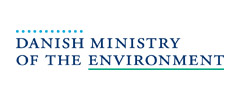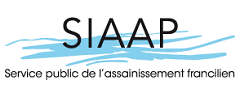EU decides on POPs in Groundwater Directive
POPs not added to new EU Groundwater protection directive, but more investigation on the effects have been added
06.05.2005 |Sascha Gabizon
MEPs make waves but fail to disturb water law
Environment Daily 1870, 29/04/05
European Commission proposals to revise 25-year-old EU rules on protecting groundwater from pollution have been passed by the European parliament largely intact. A fierce first-reading debate on the law centred on two competing amendments that would have significantly strengthened or weakened the directive respectively. Neither was passed.Many MEPs wanted to require discharges to groundwater of a large number of chemical pollutants to be prevented. The amendment was backed by all parliamentary groups except the largest - the EPP. The Greens said its narrow failure to pass would "seriously undermine" groundwater protection. But parliamentary rapporteur, EPP member Christa Klass, said the assembly had "averted a bureaucratic monster".
The key competing amendment would have exempted from the directive's controls all discharges of fertilisers and pesticides that are made under "good agricultural practice". This too was defeated.
The legislative revision was tabled by the Commission in late 2003. It specifies threshold levels for nitrates and pesticides in groundwater. It also requires member states to set their own national monitoring threshold values for nine chemical pollutants, plus any others that might put their groundwater at risk, by the end of this year (ED 22/09/03).
It also calls on member states to curb discharges to groundwater of six types of pollution outlined in the 2000 water framework directive. The first parliamentary amendment would have added to this all persistent, bioaccumulative and toxic chemicals, endocrine disrupters and other substances that have "equivalent effect" - a potentially huge list of substances. Though it was narrowly defeated, EU sources say the latest thinking in the council of ministers is to include a similar but less tough list of additions.
On other issues, parliament voted for some significant changes to the Commission proposal. One would remove member states' scope to invoke socioeconomic constraints when setting national threshold values. A second would require more investigation of the effects of pollution on groundwater ecosystems as well as the water quality itself.
Follow-up: European parliament, tel: +32 2 284 2111,
plus amendments to Commission proposal. See also parliamentary news release
plus press releases from EEB, Greens/EFA and the EPP
First meeting for UN toxic substances treaty
Environment Daily 1870, 29/04/05
Parties to the UN Stockholm convention on persistent organic pollutants (Pops) will gather in Puente del Este, Uruguay, from Monday for their first conference since the treaty entered force last May (ED 18/05/04).Participants in the five-day conference will debate how to effectively eliminate the "dirty dozen" chemicals listed in the convention. They will also consider how to deal with government requests for exemptions for listed termiticides. And they must decide how suggestions for additions to the convention from signatories should be evaluated.
The European Commission said it would push for the adoption of best practice guidelines to prevent the release of Pops. Industry groups Croplife, the World chlorine council and the International council of chemical associations came out in support of guidelines already developed by the Stockholm secretariat.
Green group WWF suggested 20 more chemicals for addition to the convention. Its list includes nine chemicals also put forward by the European Commission (ED 16/08/04),
as well as brominated flame retardant deca-BDE, and perfluorinated compound PFOS, currently being considered by the United nations economic commission for Europe (Unece) (ED 03/12/04).
Another environmental group, the International Pops elimination network (Ipen), issued two studies showing worldwide contamination by the 12 Pops already controlled by the convention or by toxic substances that it says should be added to the convention's controls.
Parliament's biggest group takes aim on Reach
Environment Daily 1870, 29/04/05
The European parliament's biggest parliamentary group, the centre-right EPP, has agreed a joint position on the Reach substance policy review. The line was brokered by German MEP Hartmut Nassauer. It resembles closely the position of EU chemical industry group Cefic. Substances would be prioritised for registration based on a basic preliminary risk assessment. Medical products, foodstuffs, pesticides, waste, metals and coating materials would be exempt from the law. EPPmembers will now defend it in all parliamentary committees. Around 1,300 amendments have been tabled in total by MEPs. See EPP press release.
Greenpeace renews toxics substitution call
Environment Daily 1870, 29/04/05
Products aimed at children and babies contain the highest levels of toxic chemicals out of a basket of consumer goods, according to tests publicised by environmental group Greenpeace on Friday. Some manufacturers "deliberately add" chemicals like phthalates, alkylphenols, organotins and synthetic musks, it said, demonstrating the need for the EU's Reach chemicals policy to drive substitution by safer alternatives wherever possible. Samsung, Nokia and Puma - and now also Sony and Sony-Ericsson - have committed to phase out specified hazardous chemicals, showing that mandatory substitution is workable, it added. See press release.

































